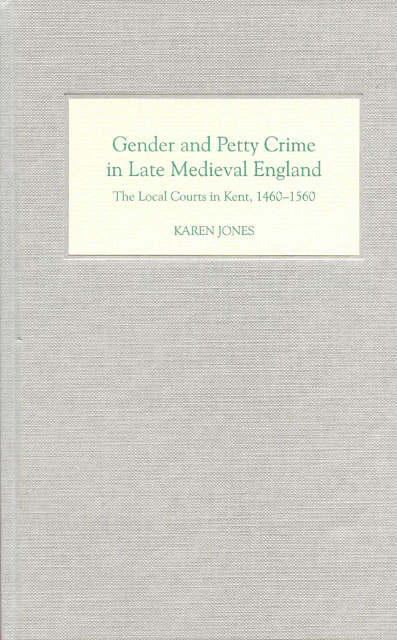2 - Offences against Property
Published online by Cambridge University Press: 23 March 2023
Summary
The word ‘thief’ was frequently used as an all-purpose insult for men, without necessarily implying that its target was suspected of theft. The comparable insult for women was ‘whore’. This bears out the contention that ‘honesty’ for women meant principally chastity, while for men it meant chiefly probity in business dealings. An important component of male honour was also the ability to provide for one's dependants, so the temptation to steal would be great for men who could not fulfil this duty by lawful means. Thus we might expect that men would commit offences against property more often than women, and be more severely punished. Most studies of property crime and gender have claimed that this was the case, and that prosecutions for property offences are reliable evidence of differential treatment of men and women. Thefts are considered less likely than minor offences to fluctuate according to ‘control waves’, the numbers on trial are quite large and the charges roughly similar. However, these conclusions come from studies based on assize and quarter session records, rather than on the mostly petty thefts which were prosecuted in local courts. The records of the latter tell a rather different story.
The petty thefts more likely to appear in borough and manorial courts might well be more subject to ‘control wave’ fluctuation. Moreover, presentments or indictments for property offences do not loom so large in local court records as they do at the assizes. It is often claimed that offences against property were the most frequently prosecuted of all crimes in late medieval and early modern England. But, as Knafla has demonstrated for Kent, local courts dealt with far more defendants than assizes and county quarter sessions combined, and in local courts, property offences accounted for only a small percentage of all business. This certainly applies to the courts of Canterbury, Fordwich, Queenborough and New Romney. As Table 4 shows, in the surviving records from 1461 to 1560, property offences amount to only just over 10% of all charges, heavily outnumbered by assaults, nuisances and moral offences. In the sample from manorial courts, moral offences hardly ever appear, but assaults and nuisances are far more common than thefts. So these local court records do not yield very large numbers of theft cases.
- Type
- Chapter
- Information
- Gender and Petty Crime in Late Medieval EnglandThe Local Courts in Kent, 1460-1560, pp. 32 - 60Publisher: Boydell & BrewerPrint publication year: 2006



